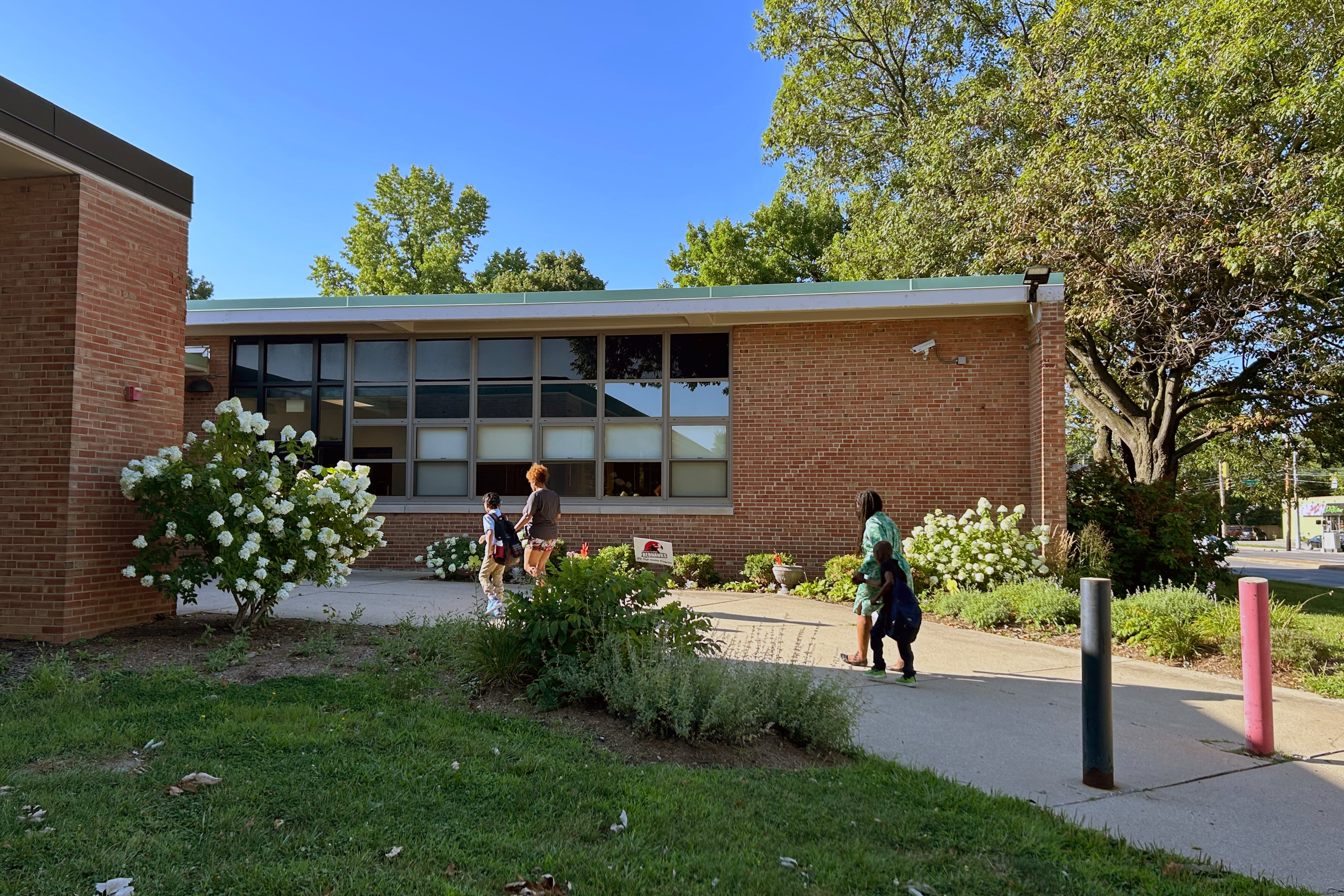Sign up for Chalkbeat Indiana’s free daily newsletter to keep up with Indianapolis Public Schools, Marion County’s township districts, and statewide education news.
This story has been updated with information about Sheridan schools’ referendum.
Smaller class sizes. School buses. Low-cost preschool.
These are some of the things that eleven Indiana districts are hoping to fund via property tax increases that voters will consider in the November election.
That includes three districts in Hamilton County, which has long been ranked as Indiana’s wealthiest county, as well as another three districts in Lake County — the second most populous county in the state behind Marion County.
Local tax increases are a mainstay of school funding in Indiana, and schools rely on them to pay teacher salaries and offer an array of programming and transportation services.
But they can be controversial. In 2021, legislators mandated changes to ballot language that emphasized the percentage by which school property taxes would increase from the base, not from what voters were currently paying. Some school leaders have said the change gives voters an exaggerated picture of how much their taxes will change.
Still, districts have not shied away from the funding measures: The number of Indiana school districts seeking tax increases has rebounded after dropping in the immediate aftermath of the pandemic.
This year, the funding requests come as schools face a fiscal cliff due to the upcoming end of emergency federal funding. And due to a new state law, school districts in Marion, St. Joseph, Vanderburg, and Lake counties will also have to proportionally share revenue from operating referendums with charter schools. That applies to three districts this year.
School districts can also seek construction referendums to pay for building and renovation projects, as well as safety referendums to pay for additional school resource officers, security improvements, and other staff.
The only construction referendum on the ballot this year is from the school city of Hammond, which is also seeking an operating referendum. The $84 million construction referendum is partially earmarked for renovating and expanding the district’s two high schools, according to the district’s ballot language.
Early voting is underway and the referendums need a simple majority to pass.
Here are the school districts seeking approval from voters in the November election for new tax increases or extensions of past rates.
Operating referendums
Carmel-Clay Schools, Hamilton County
Rate: $0.19 per $100 of assessed property value for eight years
Annual revenue: $24 million
Highlights from the spending plan: $23 million dedicated to retaining and attracting teachers and staff
Hamilton Southeastern Schools, Hamilton County
Rate: $0.1995 per $100 of assessed property value for eight years
Annual revenue: $24 million
Highlights from the spending plan: $9 million for attracting and retaining teachers and $5.9 million for maintaining class sizes
Lake Station Community School Corporation, Lake County
Rate: $0.54 per $100 of assessed value for eight years
Annual revenue: $1.3 million
Highlights from the spending plan: $466,000 for school bus transportation
Monroe County Community School Corporation, Monroe County
Rate: $0.085 per $100 of assessed value for eight years
Annual revenue: $8.5 million
Highlights from the spending plan: $6 million for funding low-cost preschool, $1.25 million for eliminating K-12 student fees
Northeast Dubois County School Corporation, Dubois County
Rate: $0.18 per $100 of assessed value for eight years
Annual revenue: $703,000
Highlights from the spending plan: $390,000 for academic programming
School City of Hammond, Lake County
Rate: $0.44 cents per $100 of assessed value for eight years
Annual revenue: $14.6 million
Highlights from the spending plan: $4.8 million for school bus transportation
School City of Whiting, Lake County
Rate: $0.17 cents per $100 of assessed value for eight years
Annual revenue: $1.1 million
Highlights from the spending plan: $418,000 staff recruitment
West Lafayette Community Schools, Tippecanoe County
Rate: $0.37 cents per $100 of assessed value for eight years
Annual revenue: $7 million
Highlights from the spending plan: $4.4 million for teacher and staff compensation for managing class sizes
Sheridan Community School Corporation, Boone & Hamilton Counties
Rate: $0.25 cents per $100 of assessed value for eight years
Annual revenue: $1.3 million
Highlights from the spending plan: $896,000 for retaining and attracting teachers and staff
Safety referendums
Bluffton Harrison MSD, Wells County
Rate: $0.075 cents per $100 of assessed value for eight years
Annual revenue: $445,000
Highlights from the spending plan: $254,000 for additional school resource officers
Fort Wayne Community School Corporation, Allen County
Rate: $0.10 cents per $100 of assessed value for eight years
Annual revenue: $12 million
Highlights from the spending plan: $4 million for student advocates
Construction referendums
School City of Hammond, Lake County
Rate: $0.4357 per $100 of assessed value for eight years
Revenue: $84 million over 25 years
Highlights from the spending plan: Renovations and additions at Hammond Central High School and Morton High School
Aleksandra Appleton covers Indiana education policy and writes about K-12 schools across the state. Contact her at aappleton@chalkbeat.org.







